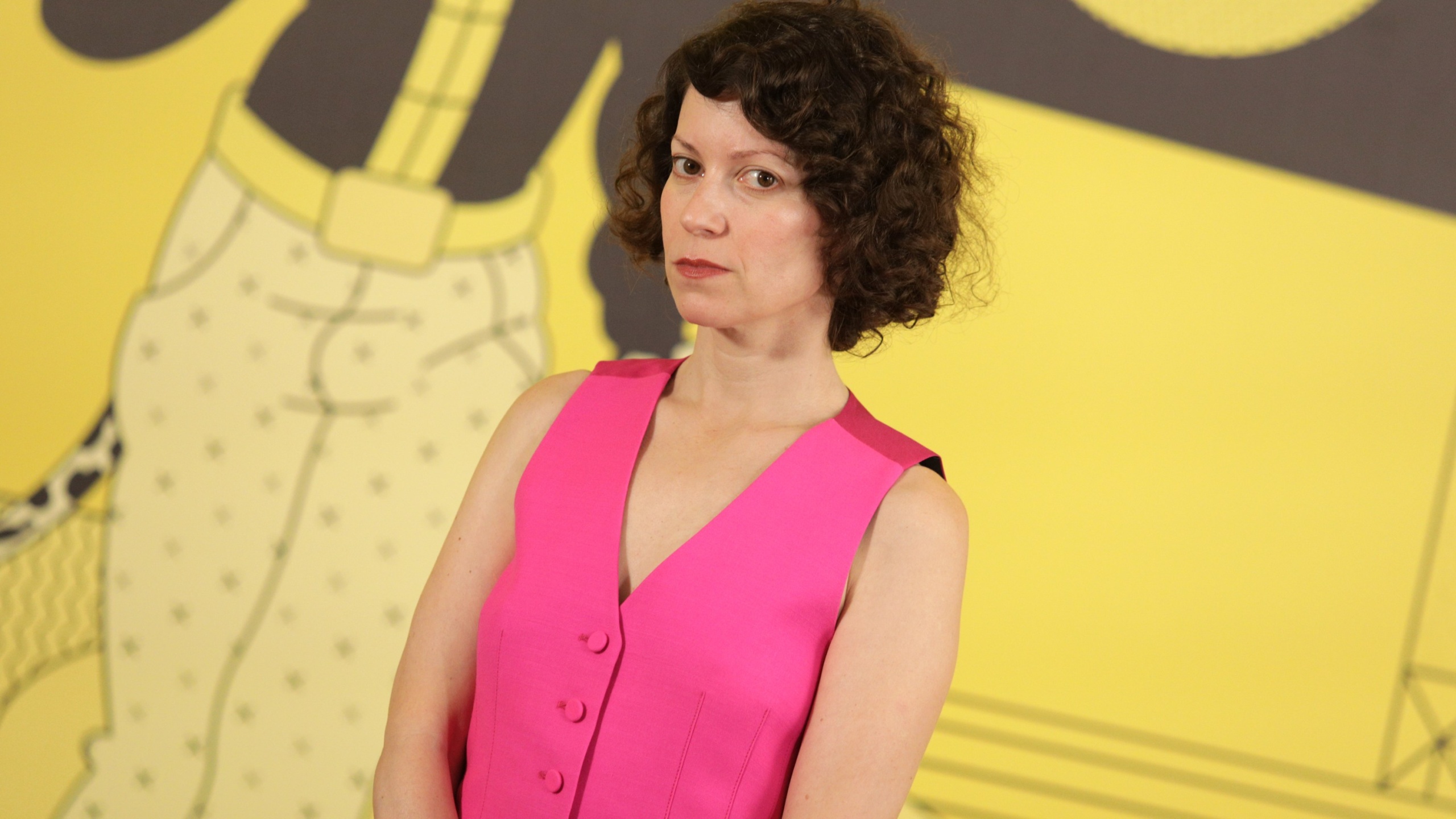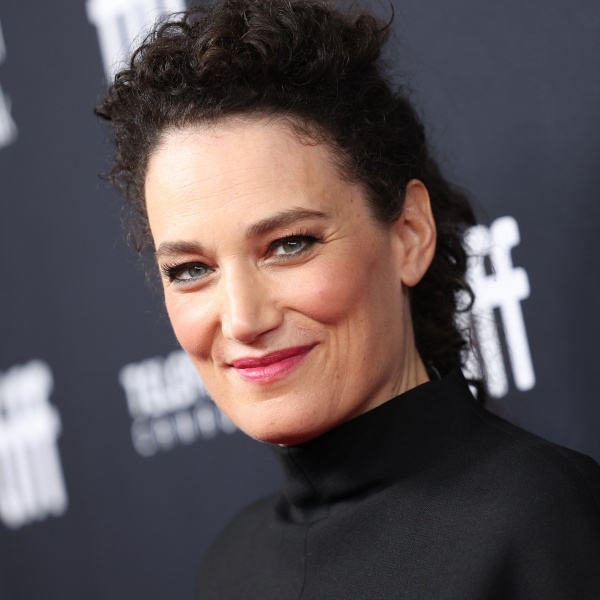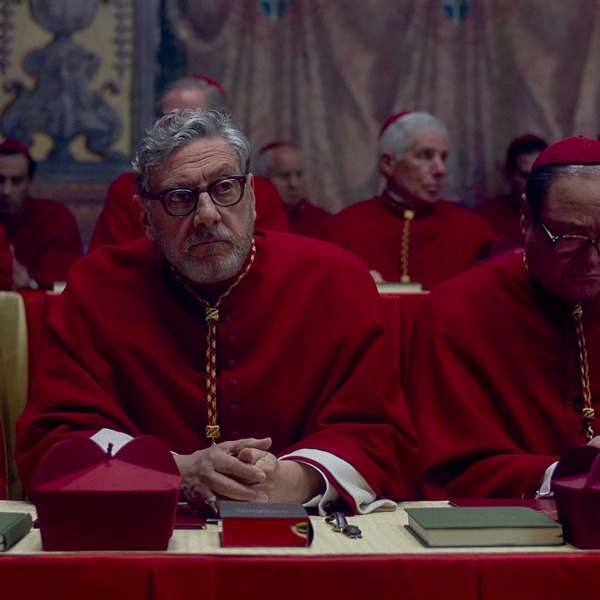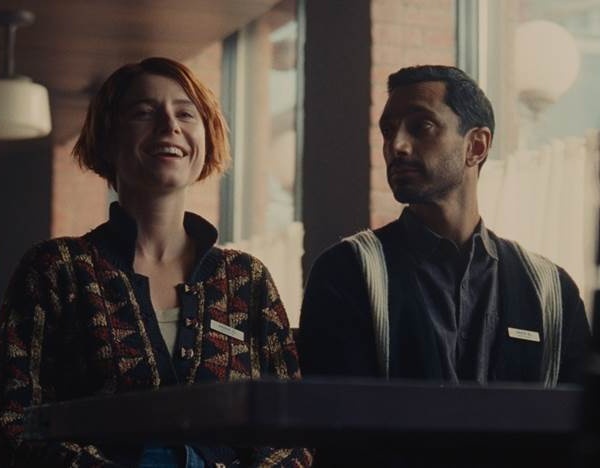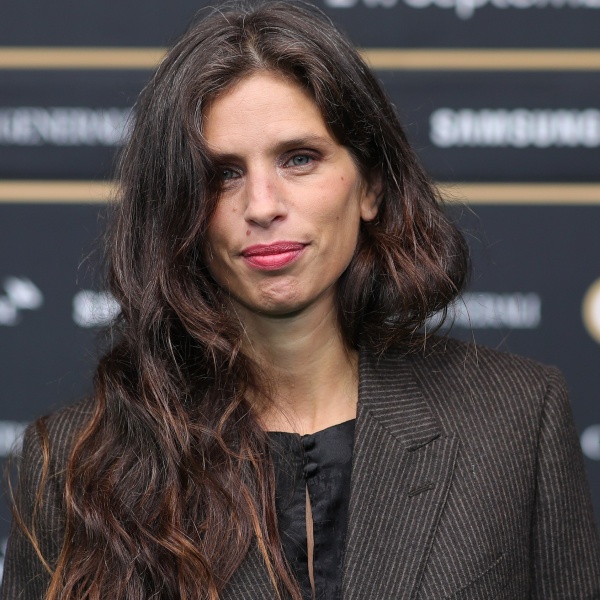With horseback riding comes pleasure, pain, and the kind of purpose that could only be derived from the bond between a woman and a horse. It’s with this in mind that Berlin-based visual artist Ann Oren co-wrote and directed her feature debut “Piaffe,” which is also inspired by the concept of a female centaur, or a woman whose sexual organs are, well, horse-like.
“Piaffe” premiered at the 2022 Locarno International Festival, where it became a critical hit. Co-written by Thais Guisasola, Oren’s “Piaffe” may sound like a surreal drug-induced fantasy: An introverted woman named Eva (Simone Bucio) grows a horse’s tail while foleying sound for a commercial about an equine-inspired drug. Eva becomes part of a BDSM relationship with a botanist (Sebastian Rudolph) that involves auto-erotic asphyxiation, whipping, and more kinks.
But while Eva is the submissive subject in the relationship, Oren explained to IndieWire that “Piaffe” is really about Eva’s sexual coming-of-age, with the sub having more control.
“In the beginning, she does appear weak, submissive, and she is. But … she makes this tail into something powerful, this ‘otherness’ of her body actually empowers her,” Oren said in a recent interview with IndieWire. “So she uses submission like a game, and turns it into a role-play. It is her bodily pleasures that are being catered to. In BDSM, which ‘Piaffe’ delicately alludes to, the submissive person is the one in control, the one whose desires are the focus, the one that is looked at, and this gaze becomes the erotic act for her. I thought it would be interesting to explore this dimension through Eva’s character. In the end, she clearly has a lot of power over the botanist, who falls in love with her.”
Oren noted that examples of early cinema, like Eadweard Muybridge’s “The Horse in Motion,” helped dictate her selection of a horse to be the creature Eva bonds with. She added, “I’m also interested in the female-horse connection, so I imagined a female centaur — they are male in the myths — as well as explored non-normativity in women through their connection with horses, being both leaders and caretakers at once.”
Oren was also inspired by foley artists and how they “use their own bodies to imitate the characters onscreen” to create a surrogate reality. “Many people don’t even know that this profession exists,” Oren said. “An idea came to my head one day to make a film about a foley artist who will create sounds, not for a person, rather a horse, and that she would grow a horsetail, and then this transformation would open a whole imaginary world for her to explore her own fluid gender, sexuality, and connection to other species.”

Jan Švankmajer’s film “Conspirators of Pleasure” first made Oren aware of foley artists through its rich sound design, and she said she also drew inspiration from “Celine and Julie Go Boating” and its magical role-playing element.
Oren spoke with real foley artists, one of which told her that “psychotic episodes” are common with the profession. “After days on end of working alone in a sound controlled room, where everything they hear is their own creation made for a looping clip, once they step into the loud streets, they get a sensory overload that make them question reality,” Oren said. That inspired Oren to imagine that Eva is working on a commercial for mood stabilizers. (“Only in the U.S., by the way, is it allowed to run commercials for prescription medications on TV.”)
Of course, the success of “Piaffe” hinged on finding the perfect Eva. “Casting is all about intuition,” Oren said. “I found [Simone’s] analysis of the character and of the story itself so profound, I immediately thought that working with her would be a very inspiring process. She somehow completed a puzzle, because you can only write a character to a certain point. She made Eva complete and with full commitment slid into the role.”
Bucio had to learn German for the role, and wore the horse tail prosthetic on set, which was crafted by tail master Sada Leigh. Oren teased that Leigh and Bucio “have their secrets” as to how the tail stayed on during sex scenes.

“The key sexual organ is a prop,” Oren said, revealing how she directed the intense sequences. “They were carefully blocked with my direction during rehearsal and with a little more attention to create a safe space. But our team was very small, so the entire shoot was kind of an intimate experience.”
And that intimacy translates onscreen, with an emphasis on affect and the sensation of even the slightest touch. Oren, who revealed she has received some shocking reactions from audiences, stood by the potentially controversial film.
“I think ‘Piaffe’ is like a Rorschach test to the viewer’s own openness to sexual experimentation,” she said. “It is a playful, sex positive film with surreal touches, everything is consensual and happening between adults, so from specific viewers’ reactions I can learn something about them.”
Oren confirmed she is working on another project with “Piaffe” actress Bucio, one that incorporates nature in a different way: the feature in the works involves mushrooms and other funghi…and sex, no doubt.
An Oscilloscope release, “Piaffe” will be released on Friday, August 25 in New York at the Quad Cinema and in Los Angeles on Friday, September 15 at Landmark’s Nuart Theatre.
